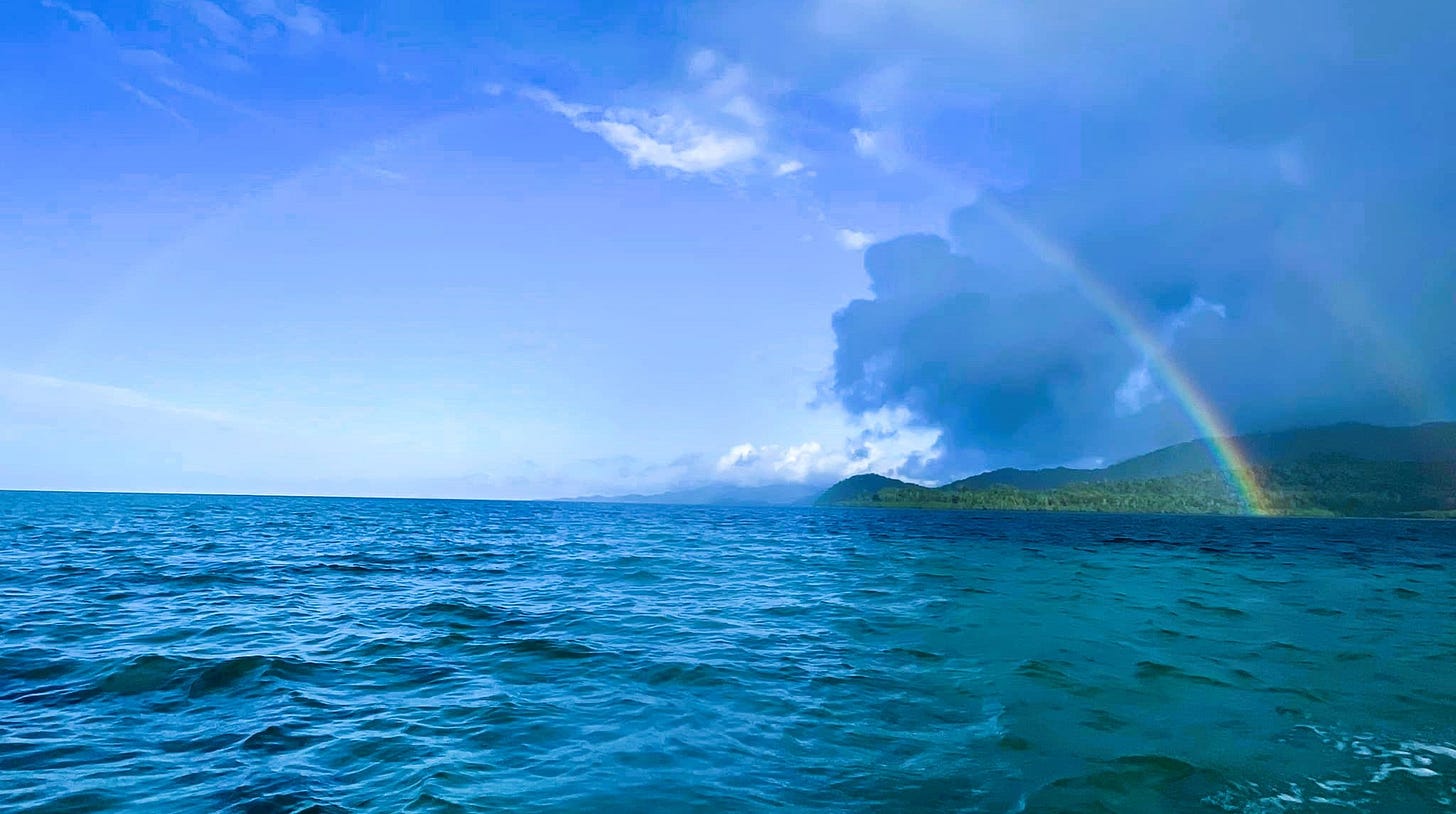Same Humanity, Less Opportunity
Being a missionary is not a kismet; I believe it is part of God’s plan to send me here to Papua New Guinea. The esoteric experiences have deepened my faith and enriched my understanding of what it means to serve. There are countless stories to share, as every day brings new firsts—from adjusting to the environment, local food, cultures, and language to embracing deleterious seiche during our island adventures. When people ask about my mission here in Papua New Guinea, I consistently respond, “Same humanity but with fewer opportunities.”
Living in PNG, the stark contrast between the wealth of natural resources and the pervasive poverty is striking. The islands boast stunning seas teeming with fish and corals, and the lush mountains are brimming with minerals and vegetation. Yet, the reality for many is a daily struggle for survival. In the community where I reside, I’ve witnessed the heartbreaking truth that basic medicines like Panadol or amoxicillin are considered a catholicon. Malaria is a frequent affliction, a reminder of the health challenges that plague this region. Tragically, I’ve met young individuals who manage to eat just once a day, often resorting to chewing betel nuts or relying on coconuts for the rest of the day. This reality highlights a broader narrative of injustice—that many are deprived of life’s essentials in a land rich with resources.
During his recent papal visit, Pope Francis spoke to both the government and religious leaders about the scarcity of the basic needs of humanity, namely, the need for “COMPASSION, CLOSENESS, and TENDERNESS.” These three words resonated deeply with me as I witnessed the daily struggles of the people here. They face numerous challenges: inadequate communication and health systems, costly transportation and groceries, a severe lack of educational resources, and even safety concerns that extend to us missionaries, among others. Rather than merely providing material assistance, I find my mission fueled by a desire to variegate COMPASSION, CLOSENESS, and TENDERNESS within this community.
THE CALL FOR COMPASSION. It’s impossible to ignore the violence, poverty, hunger, and injustice surrounding me. Much like Jesus, who was moved with compassion upon seeing the weary crowds, I, too, feel a goad to respond to the suffering I see. This isn’t just a distant issue; it’s a visceral experience that compels me to act with meraki.
THE CALL FOR CLOSENESS. Building genuine relationships with the people here is essential to our mission. Closeness involves more than just propinquity; it’s about sharing our time, talents, and treasures, engaging in prayer, and dreaming together for a better future. It means immersing myself in their lives, understanding their joys and sorrows, and striving to uplift them, even in small ways. Each shared moment, each story exchanged, is a step toward bridging the gap between our worlds and fostering a sense of community and belonging.
THE CALL FOR TENDERNESS. This reminds me that every missionary must be inured for all the unexpected. Tenderness is about embracing vulnerability, acknowledging our differences, and responding to querulous moments with love and care. In this journey, I’ve understood that love often comes with its share of suffering. Our founder, St. Hannibal Mary Di Francia, beautifully encapsulated this sentiment when he said, “If to love you means to suffer, therefore I will suffer to love you.” In the depths of hardship and despair, love remains our guiding light.
This mission in the peripheries may give us consternations, but let us remember Christ, the main reason for this mission. Hopefully, by bringing His compassion, closeness, and tenderness to this same humanity, we can offer them more and brighter opportunities.
Fr. Jose Roque Arreza, RCJ, is a missionary in the Sideia Mission Center located on an island under the jurisdiction of the Diocese of Alotau-Sideia in Papua New Guinea.



